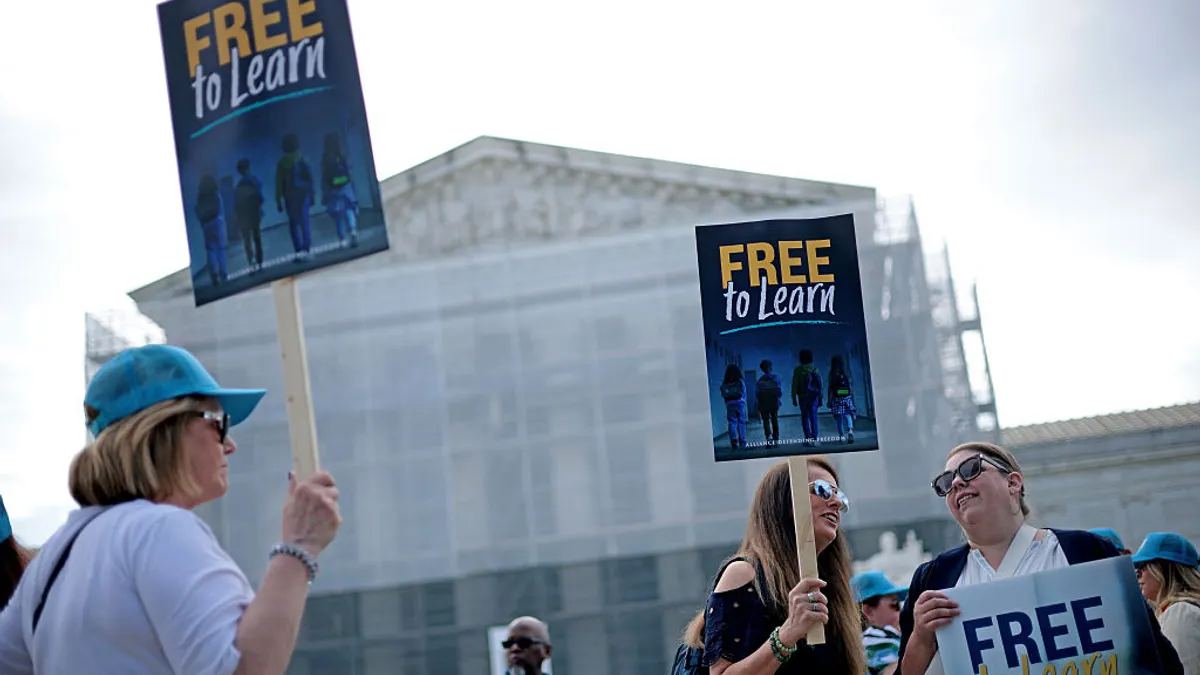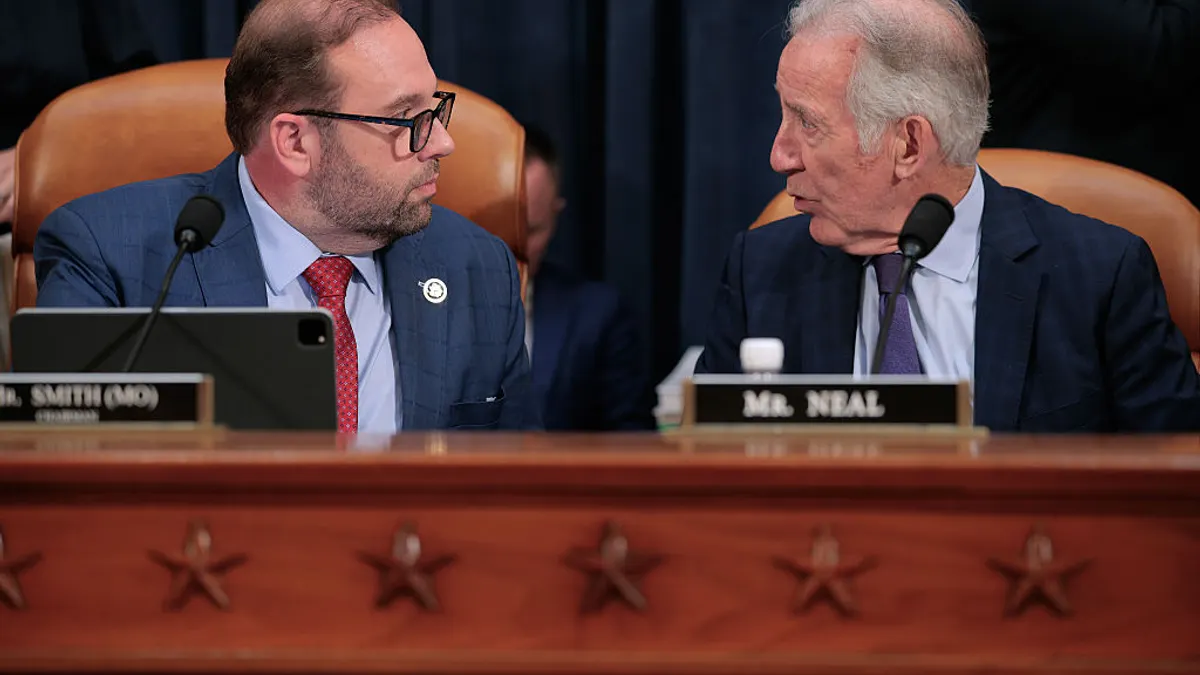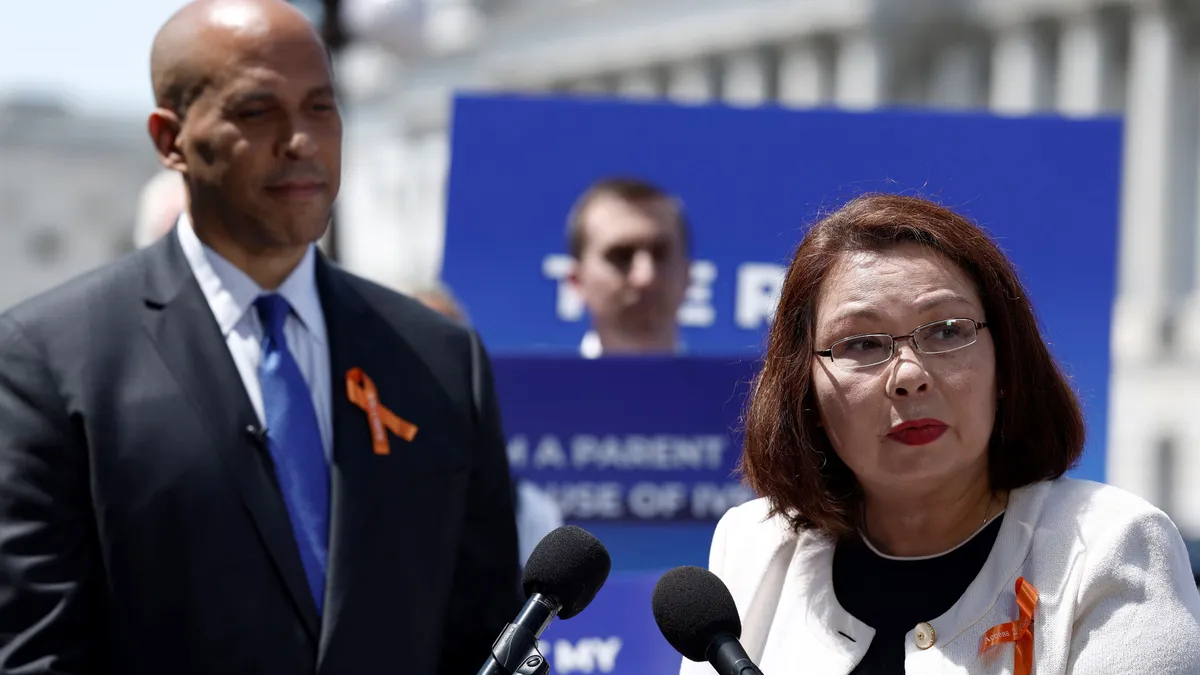UPDATE: April 25, 2025: A third ruling on Thursday, this one by Judge Dabney Friedrich in a lawsuit brought by NAACP, supported the plaintiffs' claim that the anti-DEI policy outlined in a Feb. 14 Dear Colleague letter is "unconstitutionally vague." In particular, the policy would make enforcement difficult because it did not explain the difference between "a lawful DEI practice and an unlawful one,” wrote Friedrich, a judge in the U.S. District Court for the District of Columbia.
___________________________
A federal judge on Thursday paused the Trump administration's threats to withhold funding from school systems that have diversity, equity and inclusion programs, saying the actions "raise the specter of a public 'witch hunt' that will sow fear and doubt among teachers."
The preliminary injunction came in a lawsuit brought against the U.S. Department of Education in March by the National Education Association, its New Hampshire affiliate, and the Center for Black Educator Development.
Although the plaintiffs had requested a nationwide injunction, the ruling applies only to school systems receiving federal funding that employ or contract with the lawsuit's plaintiffs or plaintiffs’ members. Still, since that covers NEA's 3 million members, the ruling's reach is wide.
Federal Judge Landya McCafferty, of U.S. District Court in New Hampshire, ruled that the plaintiffs are likely to succeed on their claim that the letter exceeds the Education Department' authority and is not in accordance with law.
McCafferty blocked the department from enforcing its Feb. 14 Dear Colleague letter, including through its End DEI portal and a Title VI certification requirement issued in April.
The department’s End DEI portal was launched in February as a way for people to report “illegal discriminatory practices” in schools and school districts. The plaintiffs said these Education Department actions have led to teachers self-censoring what they say in classrooms out of concern they'll be reported.
The April certification requirement instructed states and school districts to certify their understanding that using diversity, equity and inclusion programs to the advantage of one person’s race over another violates Title VI, the federal statute of the Civil Rights Act barring discrimination based on race, color or national origin in federally funded programs.
The document went on to state that “continued use of illegal DEI practices” could result in loss of federal funding, recoupment of previously disbursed funds and other penalties.
NEA, in a statement immediately after the ruling, called it a victory for students, parents and educators.
"Across the country educators do everything in their power to support every student, ensuring each feels safe, seen, and is prepared for the future. Today’s ruling allows educators and schools to continue to be guided by what’s best for students, not by the threat of illegal restrictions and punishment," said NEA President Becky Pringle.
In their complaint, the organizations alleged an Education Department Dear Colleague letter issued Feb. 14 violates the Fifth and First Amendments, as well as the Administrative Procedure Act.
The letter had given pre-K-12 schools two weeks to comply with a new Education Department requirement to eliminate race-based practices for admissions, hiring and other programming, or risk losing federal funding.
A second ruling deepens the blow
The February letter was the subject of a second ruling Thursday, as a similar lawsuit brought by the American Federation of Teachers resulted in a temporary block on its enforcement.
Federal Judge Stephanie Gallagher, of U.S. District Court in Maryland, ruled that the Trump administration did not follow proper procedures when issuing the Feb. 14 letter and postponed its effective date nationwide while the legal challenge against the guidance plays out.
The nation’s second-largest teachers union and other plaintiffs had alleged that the guidance “radically upends” federal antidiscrimination law and is too vague for colleges and K-12 school officials to understand what conduct is prohibited.
According to AFT, the letter also implied that a wide variety of “core instruction, activities, and programs” used in teaching students — from diversity initiatives to instruction on systemic racism — could now be considered illegal discrimination.
Gallagher wrote that a March Q&A issued by the agency appeared to walk back some of the strictest aspects of its guidance, but it still lacked “sufficient clarity to override the express terms of the [Feb. 14] Letter.”
The plaintiffs, the judge concluded, were likely to succeed in their arguments that the letter exceeds the Education Department’s authority by attempting to exercise control over curriculum.
“The government cannot proclaim entire categories of classroom content discriminatory to side-step the bounds of its statutory authority,” Gallagher wrote.























